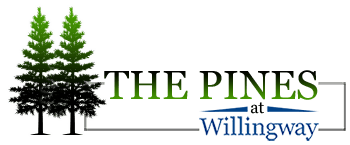When we think of kids using drugs or alcohol, it’s almost always synonymous with peer pressure. Here’s a surprising fact: many kids actually have more access to substances in their homes than through their friends.
A Myth Debunked
In the 1980s, many televised anti-drug public service announcements aired to help conquer the United States’ war on drugs. One in particular showed a father confronting his teenage son about drug use, demanding to know who taught him “how to use this stuff.” Frustrated, the son yells out “You, alright? I learned it by watching you!”
As shocking as that message was at the time, it’s not too far from the truth. By our actions or our “just this once” allowances, we might inadvertently compound substance abuse problems. For example, in 2013, the Partnership to End Addiction reported that the following:
- A lack of parental enforcement about underage drinking at home increased risk “for continued drinking as a teenager and problem drinking later in life.”
- European youth drink more than American youth, and a report from the World Health Organization cites “global longitudinal studies that found the earlier young people start drinking, the more likely they are to experience alcohol-related injury and alcohol dependence later in life.”
- “Teens who perceive their parents to be more permissive about alcohol use are more likely to abuse alcohol and to use other drugs.”
This is one end of the spectrum. But what if parents are like the father in the PSA and shocked that their kids are abusing drugs or alcohol?
How Teens Find Substances at Home
Here are some reasons why teens have access to alcohol, drugs, inhalants, and other chemical substances in the house.
Alcohol
Few parents keep beer, wine, and liquor under lock and key because we want convenient access to it. And many of us—if we’re honest—can tell tales from our teenage years about sneaking beers out of the garage ‘fridge, replenishing the near-empty vodka bottle with water, or slipping booze into our pop cans at a backyard barbecue.
So if we did these kinds of things, why can’t our kids?
It’s important to establish safeguards against easy access to alcohol at home. The Healthy Alliance on Alcohol suggests:
- Having no alcohol in the house at all.
- Keeping alcohol in a locked cabinet or closet.
- Monitoring the alcohol supply regularly.
- Having regular conversations about the rules regarding alcohol use with your kids, especially if some are of drinking age and others aren’t.
You can also form an alliance with the parents of your teen’s friends to make sure everyone is in agreement about regulating access to alcoholic products during unsupervised visits.
Here’s what to do if you discover your teen has a drinking problem.
Prescription, Over-the-Counter (OTC), & Illicit Drugs
If you opened the bathroom medicine cabinet right now, how many types of medication would you find? Prescription sleep aids? Muscle relaxers from that back injury? Anti-anxiety or depression drugs? Your teens may think you won’t miss a tablet here or there—after all, the pharmacy might have made a mistake. And there are many reports of ADHD medication such as Adderall being misused by teens.
But it’s not just prescription drugs that create an opportunity for experimentation. As WebMD notes, teens might take OTC drugs such as cold and cough medicines containing dextromethorphan (DXM) in high doses for the hallucinogenic effects. Other cold medicines containing pseudoephedrine as a decongestant are regulated by U.S. laws because they were used to make meth—but that doesn’t stop your teen from taking them after you’ve brought it home.
To reduce the temptation to misuse prescription and OTC medications, the Youth Connections Coalition suggests:
- Using a lockable medication safe inside a cabinet.
- Keeping a medication log to track the amount of medication, how much needs to be taken, and when prescriptions should be refilled.
- Storing OTC medication in a secure place, and keeping track of usage by whom and on what dates.
- Making certain your teen understands the importance of these medications and what harm might happen if they’re misused.
If you find an unknown pill in your child’s pocket or purse, use the WebMD Pill Identifier Tool to determine what it is, or take it to your local pharmacist.
Only medical marijuana oil is legal in Georgia, but laws are changing rapidly. Even if the state decriminalizes marijuana, this drug, along with many others such as opioids, amphetamines, cocaine, and even heroin, are still of major concern.
Here’s what to do if you discover your teen has a substance abuse problem.
Inhalants & Other Chemicals
Unfortunately, teens can use many personal care, office, and household products to get high. Hairspray, nail polish remover, deodorant, correction fluid, felt-tip markers, glue and rubber cement, computer cleaning spray, room deodorizer, whipped cream aerosols, cooking spray, spot removers, varnish, gasoline—there’s no limit to what a teen might try.
Parental supervision over these products and the substances they contain must be diligent, because their toxicity causes severe health problems and even death. The National Capital Poison Center recommends the following preventive measures:
- Teach teens about the proper handling of these dangerous products and include them in your talk about substances.
- Keep track of potential inhalant products in the house and store the most dangerous ones under lock and key.
- Monitor the usage of even the most innocuous items, such as nail polish remover or felt-tip markers.
You might have to keep a list of certain household items and how often you’re purchasing them if you suspect your teen or their friends are abusing them.
If you need help talking to your kids about preventing alcohol and drug abuse, download this brochure.
The Pines at Willingway Can Help Your Family
Our addiction treatment program designed specifically for adolescents and young adults ages 14–18 can help your family recover. Contact us today.

